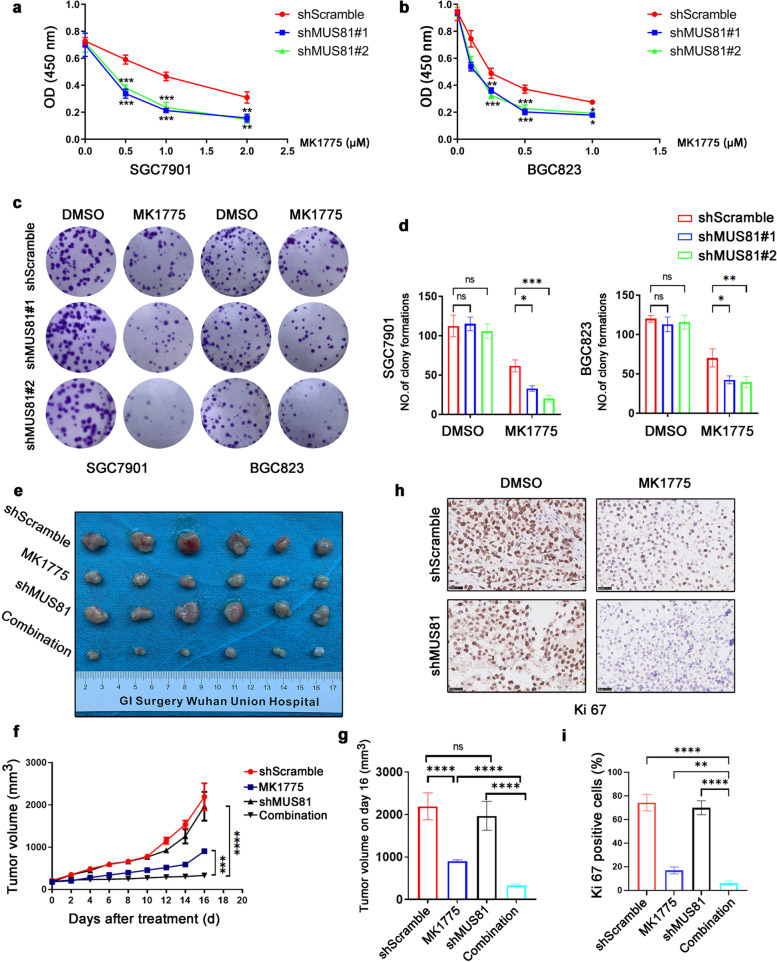Fig. 3.
Targeting MUS81 sensitizes the anticancer effect of WEE1 inhibitor MK1775 in gastric cancer in vitro and in vivo. a and b MTT assay was performed to examine the effect of MK1775 on proliferation of MUS81 knockdown and parental gastric cancer cells SGC7901 and BGC823. Data are reported as mean ± SD for five independent experiments. c Clonogenic assay was performed to detect the anticancer effect of MK1775 in MUS81 knockdown and parental gastric cancer cells SGC7901 (left) and BGC823 (right). Representative images are displayed. d Data of the clonogenic assay in SGC7901 (left) and BGC823 (right) cells are reported as mean ± SD for three independent experiments. e The image of tumors in the SGC7901 gastric cancer xenograft mice model (n = 6 for each group) after treatment for 16 d. f Tumor growth curve of indicated groups in the SGC7901 gastric cancer xenograft mice model. The data are presented as mean ± SD (n = 6 for each group). g Tumor volume on day 16 after treatment. Data are presented as mean ± SD (n = 6 for each group). h Representative images of immunohistochemical (IHC) staining of Ki67 in the gastric cancer xenograft mice model. Scale bar: 25 μm. i IHC staining analysis of Ki 67-positive cells in different groups. The data are presented as mean ± SD (n = 3). * P < 0.05; ** P < 0.01; *** P < 0.001; **** P < 0.0001; ns., not significant

